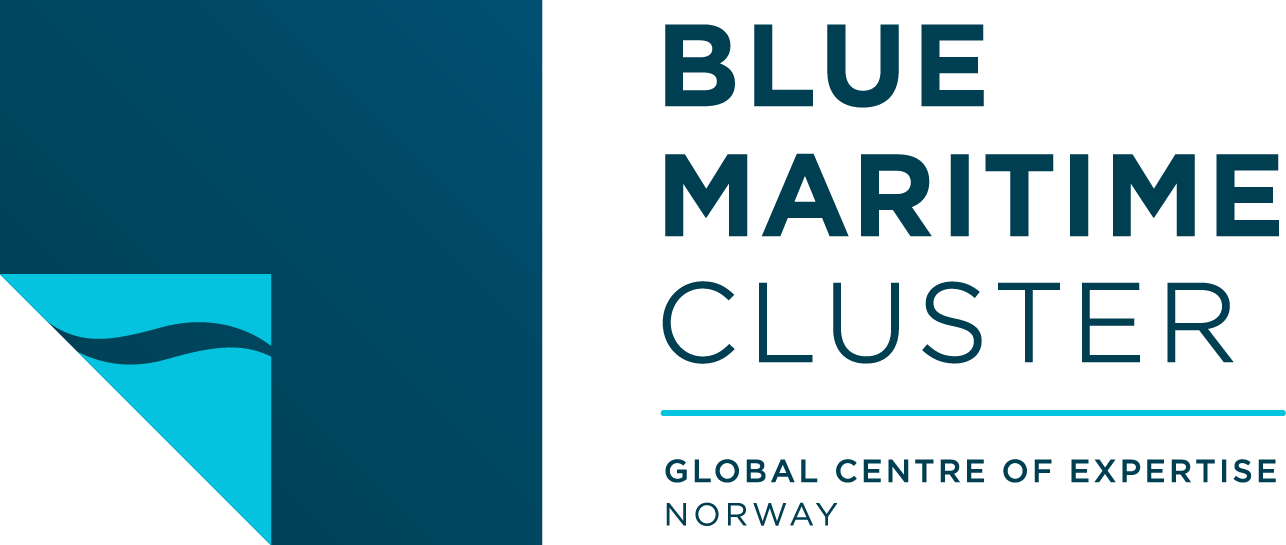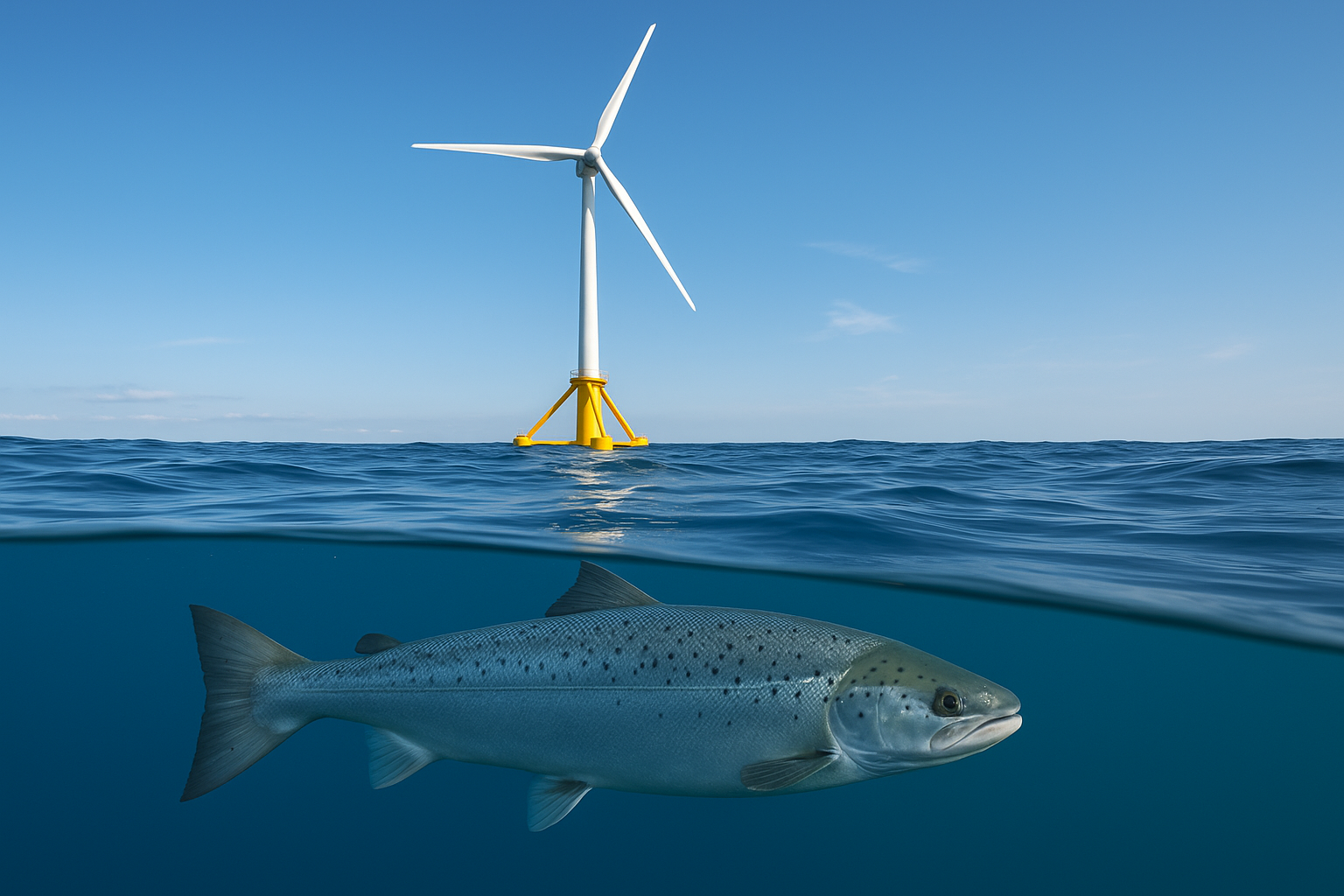
Two sustainable industries, one shared sea space
Together with Nordic partners, Freja Offshore has explored how floating wind power and offshore fish farming can coexist – creating multiple benefits for the climate, food supply, and marine ecosystems.
This is a concept image; Freja Offshore has not selected a specific technology for the Mareld project.
Co-location creates multiple benefits
-
The OFFWOFF project demonstrates that floating wind power and offshore fish farming can coexist safely and effectively. By using the same sea space for both energy and food production, we increase value per square kilometer, without compromising technical safety or environmental responsibility.
Large-scale fishing is generally not permitted within offshore wind farm areas. Instead, farming fish in these protected zones opens up new opportunities, both environmentally and economically. This type of co-location enables more controlled and resource-efficient food production with a smaller climate footprint.
-
The cold, deep, and fast-moving waters far offshore can offer better conditions for salmon farming than nearshore alternatives. Sea lice are less prevalent in these areas, reducing the need for treatments and improving fish health. The salmon grow in stable conditions with good oxygenation and temperature, while environmental impacts are lower. OFFWOFF’s analyses show that the Mareld area meets key biological criteria for sustainable salmon production.
-
Floating wind farms like Mareld create natural offshore protection zones where bottom trawling is not allowed. When these areas are also used for fish farming, we can not only produce food, but also promote the recovery of ecosystems and biodiversity. Co-location thus becomes a tool for both sustainable use and conservation.
-
According to findings from the OFFWOFF study, there is strong business potential for offshore fish farming in Sweden. Today, we import nearly all the salmon we consume. But with large-scale fish farming in floating wind parks, that could change. The west coast has the capacity to produce up to ten times more salmon than current national consumption. This would strengthen Sweden’s food security, reduce import dependence, and create new blue jobs along the coast.
Rendered images of Subfarm's offshore fish farming cage system.
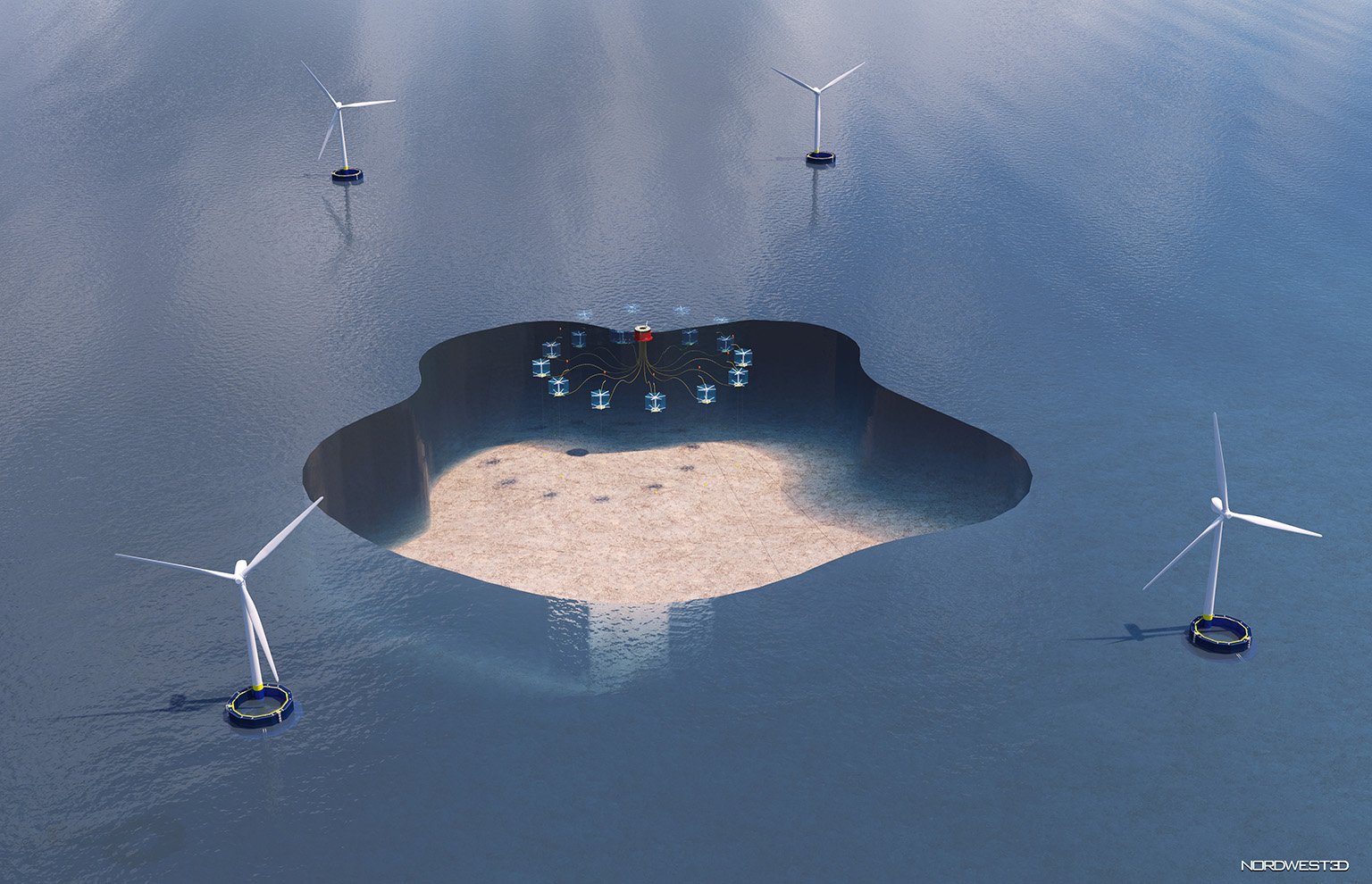

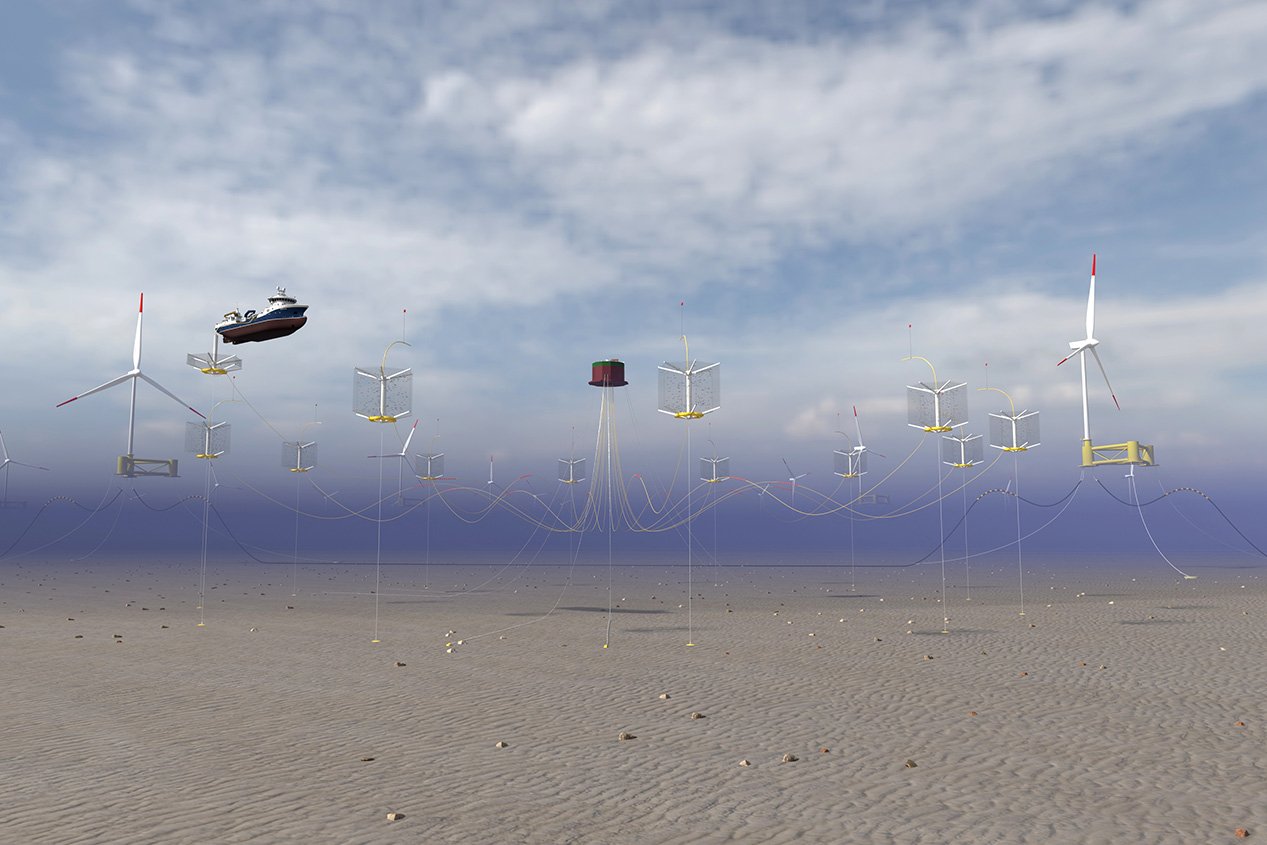
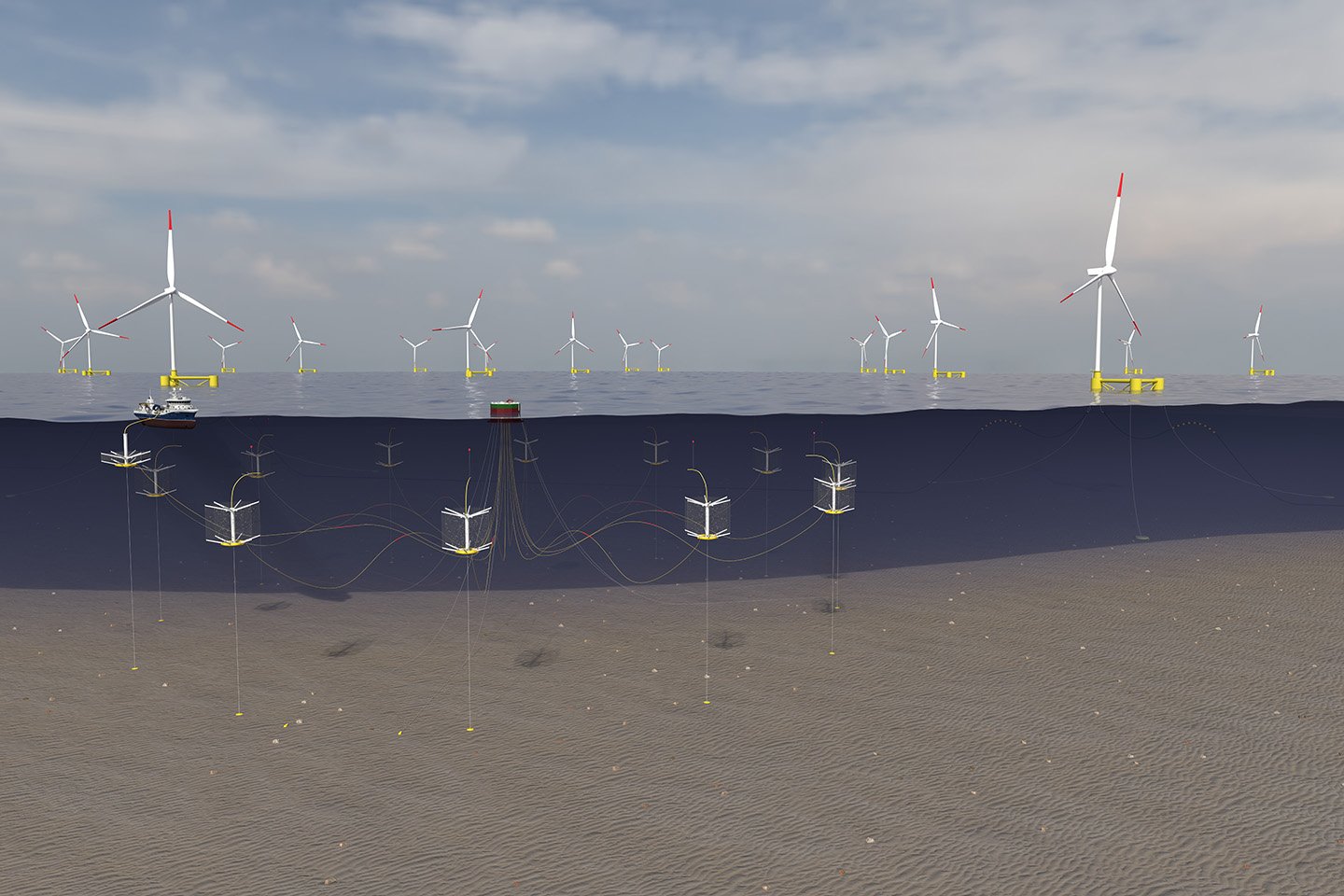
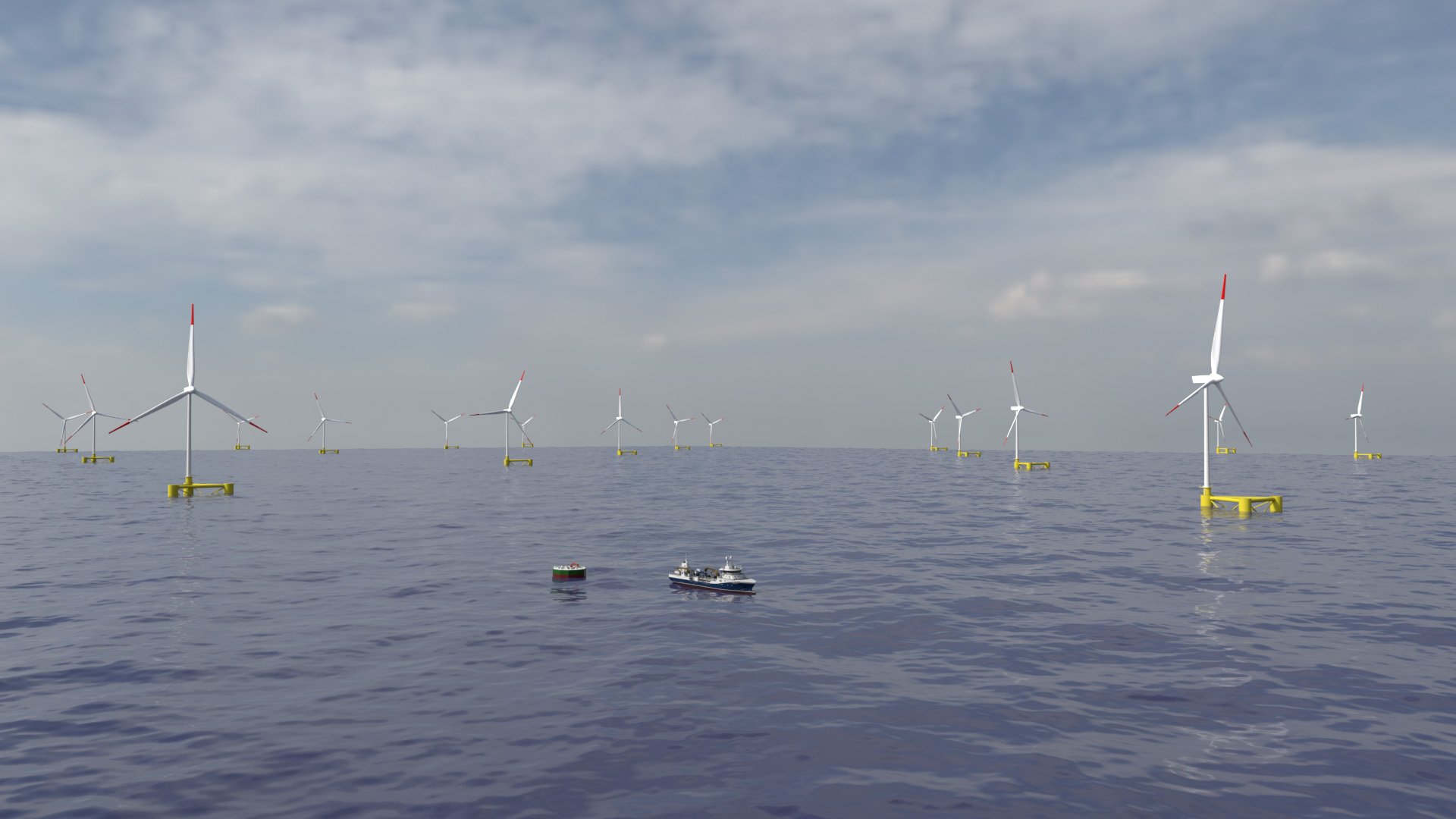
Mareld – a test site for the future’s ocean farming
With deep waters and strong currents, Mareld is an ideal location for combining offshore wind power and fish farming. Here, OFFWOFF has tested the technical and biological conditions for co-location.
A Nordic collaboration for innovation
OFFWOFF is a development project that has been running since 2024, with support from Nordic Innovation. Led by Freja Offshore, the project is conducted in collaboration with SubFarm (Norway), DHI (Denmark), ÅKP, GCE Blue Maritime Cluster (Norway), and Fyrbodal Municipal Association (Sweden).
Discover the resluts - and the future
Read the final report on Nordic Innovation’s website










